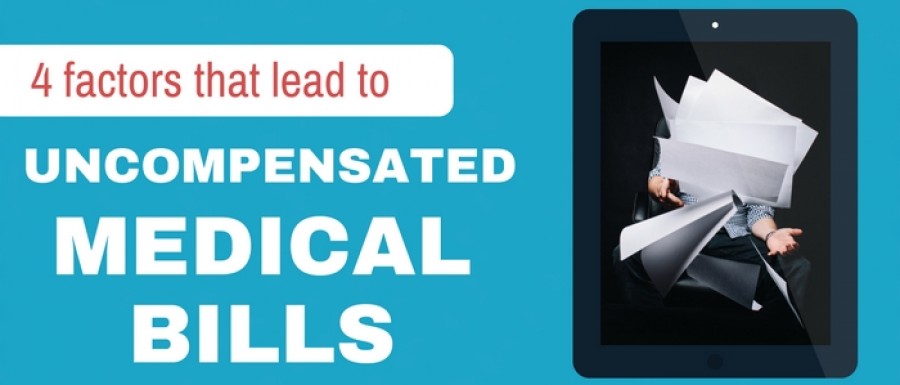
Across the country, hospitals are in the position of having to provide an increasing amount of uncompensated care to their patients. Including both bad debt and charity care, U.S. hospitals collectively face $57 billion in uncompensated medical bills annually as of 2015. This level of uncompensated medical bills is largely due to four factors: patients’ lack of insurance, the rise of the underinsured, inefficiently-designed billing and collections systems, and a number of states’ failure to expand Medicaid.
Patients’ Lack of Insurance
Certainly the most direct factor that leads to uncompensated medical bills is a patient’s lack of insurance. Even under the Affordable Care Act, approximately 28.6 million Americans lacked insurance as of 2015. The uninsured do avoid using the health care system as compared with their insured counterparts. Minor illnesses and injuries are often left untreated by uninsured Americans, and this group generally does no seek preventative care from a primary care physician. However, even the uninsured face situations in which they must seek medical care, often at a hospital’s emergency room; a National Bureau of Economic Research study found that this level of “minimum and unavoidable” health care costs hospitals approximately $900 per uninsured patient annually.
Underinsured Patients and the Increase in Patient Responsibility
Although the Affordable Care Act has led to more Americans with health insurance, the high-deductible plans that have emerged to meet the ACA’s requirements have resulted in scores of underinsured Americans. Under these high-deductible plans, patients are responsible for a much higher percentage of their medical bills–often up to 30 percent as compared with the former average patient responsibility of 10 percent. Moreover, almost one-fourth of insured Americans have a deductible of at least $2,000; at the same time, most Americans have less than $1,000 saved. Because hospitals often are able to collect only 65 cents for every dollar billed to patients, the increase in patient responsibility for the underinsured leads directly to more uncompensated medical bills for hospitals.
Inefficiently-Designed Billing and Collections Systems
Most hospitals’ billing and collections systems are oriented toward and optimized for billing companies. These hospitals can easily process the larger bills that represent the insurance company’s portion of a patient’s bill. However, the thousands of smaller bills resulting from the portion of the overall bill that remains the responsibility of insured patients are much more difficult to process and collect. Furthermore, there are obviously many fewer insurance companies than individual hospital patients, making it easier for hospitals to track outstanding bills to insurance companies than those outstanding to patients.
Find a partner to help you bill better.
States’ Failure to Expand Medicaid Under the Affordable Care Act
As of July 2016, 19 states had declined to expand Medicaid, including Texas, Florida, Virginia, Georgia and North Carolina. This failure to expand Medicaid is projected to lead to $6.4 billion in additional uncompensated medical bills in 2022, according to a National Bureau of Economic Research study.
As the state of American insurance continues to change, U.S. hospitals are likely to continue to face new challenges that will lead to further uncompensated medical bills. In response, hospitals must dramatically reform their billing and collections systems if they hope to meet the challenges of the new health insurance landscape and reduce their uncompensated medical bills.
Need help finding a qualified RCM partner to collect more compensation? Download our infographic for some free advice!


